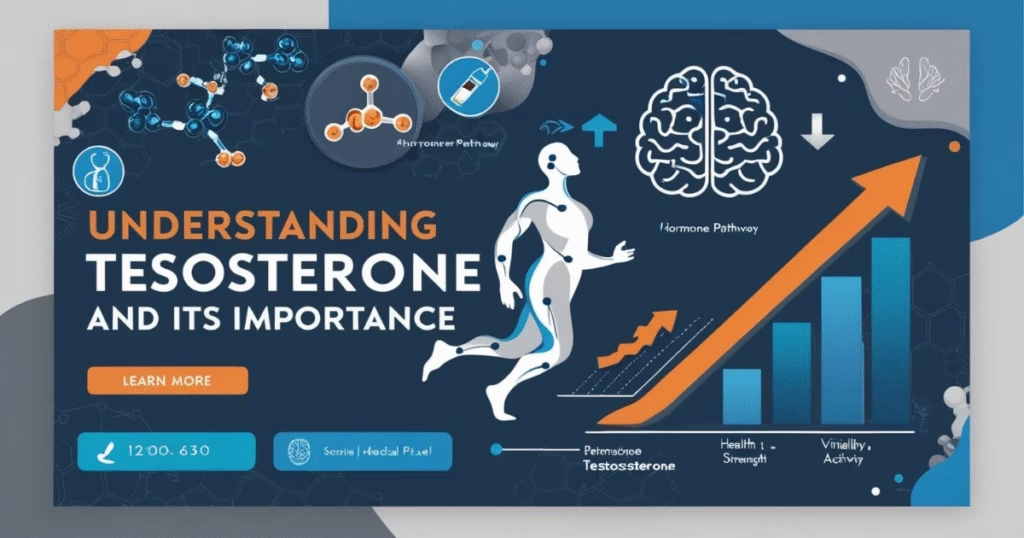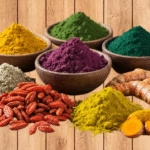Introduction to Testosterone and Nitric Oxide
Testosterone and nitric oxide are two critical components in the realm of sports performance and muscle growth. While they serve distinct functions within the body, both substances significantly contribute to an athlete’s ability to enhance their physical capabilities and overall health. Understanding their roles is essential for individuals looking to optimize their athletic performance and muscle development.
Testosterone, a steroid hormone primarily produced in the testes in men and the ovaries in women, plays a vital role in the development of muscle tissue. It influences protein synthesis, fat distribution, and energy levels, making it fundamental for muscle growth and strength gains. Increasing testosterone levels can lead to enhanced muscle mass, improved recovery after exercise, and increased motivation to train. Moreover, testosterone is known for its contribution to bone density and physical well-being, which are essential aspects for athletes aiming for consistent performance.
On the other hand, nitric oxide (NO) acts as a signaling molecule that promotes vasodilation, or the widening of blood vessels. This process enhances blood flow, allowing for improved oxygen and nutrient delivery to muscles during exercise. Elevated nitric oxide levels can lead to better endurance, increased muscle pump, and enhanced workout performance. Supplements designed to boost nitric oxide typically contain ingredients such as L-arginine or L-citrulline, which facilitate its production in the body, thereby contributing to a more effective workout and faster recovery.
In comparing testosterone boosters and nitric oxide, it is crucial to note that while both contribute to athletic performance, they target different physiological processes. Testosterone boosters focus on increasing hormone levels for muscle growth, while nitric oxide supplements enhance blood flow and endurance during workouts. Together, they can complement each other, but understanding their individual roles will help athletes make informed choices about their supplementation strategy.
Understanding Testosterone and Its Importance
Testosterone is a vital hormone primarily produced in the testes for men and ovaries for women, with small amounts produced in the adrenal glands. It plays a crucial role in various physiological functions, influencing muscle mass, strength gains, metabolism, and overall energy levels. As a key androgen, testosterone significantly contributes to the development of muscles, promoting an increase in protein synthesis, which leads to greater muscle hypertrophy when paired with resistance training.
The relationship between testosterone levels and strength gains is particularly significant; higher testosterone levels are generally associated with enhanced strength, endurance, and recovery. Consequently, individuals with optimal testosterone levels tend to experience better athletic performance and muscle development. A decline in testosterone, often observed with age or stress, can negatively impact physical performance, resulting in decreased muscle mass, sluggishness, and an increased risk of weight gain due to metabolic slowdown.
Natural testosterone boosters, such as certain dietary supplements, lifestyle modifications, and specific training regimes, aim to increase the body’s endogenous production of testosterone. These methods can enhance physical performance without the risks associated with synthetic alternatives. However, the effectiveness of natural testosterone boosters can vary among individuals, and results may not be as pronounced as those achieved with synthetic options. Synthetic testosterone, commonly prescribed for men with clinically low levels of the hormone, can offer substantial benefits in terms of muscle gain and overall vitality. Nevertheless, the use of synthetic testosterone can have drawbacks, such as potential side effects, hormonal imbalances, and increased health risks if not monitored closely.
In balancing the benefits and drawbacks of both natural and synthetic testosterone boosters, it is essential to consider individual goals and health profiles to determine the most appropriate approach for improving testosterone levels and achieving desired fitness gains.
Exploring Nitric Oxide: What It Is and How It Works
Nitric oxide (NO) is a colorless gas that plays a crucial role in various physiological processes within the human body. Chemically, it is composed of one nitrogen atom and one oxygen atom. This simple yet powerful molecule serves as a signaling molecule that influences vascular tone and blood flow. Understanding its role in enhancing athletic performance and supporting muscle gains can provide valuable insights for individuals looking to optimize their workouts.
One of the primary functions of nitric oxide is its ability to promote vasodilation, which is the widening of blood vessels. When nitric oxide is produced within the endothelial cells lining the blood vessels, it relaxes the smooth muscle cells, leading to improved blood flow. Enhanced blood circulation is vital during physical activity as it increases the delivery of oxygen and nutrients to working muscles. This improved nutrient delivery can significantly enhance workout performance, endurance, and overall recovery.
Additionally, nitric oxide supports the body’s aerobic capacity, enabling athletes to sustain higher levels of intensity for longer durations. By reducing the oxygen cost during exercise, nitric oxide can enhance stamina and delay the onset of fatigue. The result is a more effective workout experience, allowing individuals to push their limits and achieve better results concurrently.
Interestingly, nitric oxide levels can be naturally boosted through diet and supplementation. Foods rich in nitrates, such as beets, spinach, and arugula, can enhance nitric oxide production with minimal effort. Furthermore, various supplements, such as L-arginine and L-citrulline, are known to support increased nitric oxide synthesis, providing athletes with additional means to improve their performance. Understanding and maximizing nitric oxide levels can be a game-changer for those seeking enhanced athletic outputs and improved muscle gains, connecting the body’s biochemical processes with one’s fitness goals.
Comparing Mechanisms: How Testosterone Boosters Work
Testosterone boosters are widely recognized for their potential to enhance physical performance, particularly in terms of muscle mass and strength gains. These boosters operate through various mechanisms, primarily aimed at increasing the levels of testosterone in the body. Understanding these mechanisms can elucidate their effectiveness and inform potential users about their options.
One of the most common types of testosterone boosters includes natural herbs. Ingredients such as fenugreek, tribulus terrestris, and ashwagandha are thought to promote the body’s natural testosterone production or inhibit hormones that can negatively impact testosterone levels. For instance, fenugreek is believed to influence enzymes related to testosterone synthesis, potentially leading to increased concentrations of this vital hormone.
Dietary supplements represent another significant category of testosterone boosters. These products may contain essential vitamins and minerals, such as zinc and vitamin D, which are crucial for maintaining optimal testosterone levels. By addressing possible nutritional deficiencies, these supplements can support the body’s ability to produce testosterone efficiently. Additionally, certain amino acids, like D-aspartic acid, are also included for their role in stimulating testosterone synthesis through complex biochemical pathways.
Hormonal therapies, including testosterone replacement therapy (TRT), provide a more direct approach to boosting testosterone levels. This therapy usually involves the administration of synthetic testosterone to individuals with clinically low testosterone levels. By directly increasing testosterone levels, TRT can lead to significant improvements in muscle mass, mood, and overall energy levels.
In summary, testosterone boosters encompass a variety of methods, from natural herbs to dietary supplements and hormonal therapies. Each works in distinct ways to elevate testosterone levels, contributing to potential gains in muscle mass and strength. Understanding these mechanisms can assist individuals in selecting the most appropriate option for their health and fitness goals.

The Role of Nitric Oxide in Athletic Performance
Nitric oxide (NO) plays a significant role in enhancing athletic performance through its ability to improve blood flow and oxygen delivery to working muscles. As a vasodilator, nitric oxide facilitates the widening of blood vessels, which can lead to increased circulation. This enhanced blood flow not only enables more nutrients and oxygen to reach active tissues but also aids in the removal of metabolic waste products that accumulate during physical exertion. Various studies indicate a strong correlation between elevated levels of nitric oxide and improved performance metrics, including strength, endurance, and recovery times.
Research has consistently demonstrated that athletes who incorporate nitric oxide boosters into their supplementation regime may experience greater improvements in performance. For instance, a study published in the Journal of Applied Physiology found that participants who supplemented with L-arginine, an amino acid that can enhance nitric oxide production, displayed significant gains in exercise capacity and muscle endurance. Furthermore, other research highlighted that subjects consuming beetroot juice, rich in nitrates, achieved better performance outcomes in high-intensity interval training.
In addition to directly influencing circulation, nitric oxide has been linked to better muscle contractility and fatigue reduction. The increased availability of oxygen and nutrients supports prolonged physical activity and faster recovery times after exercise. Popular nitric oxide supplements, such as L-citrulline and beetroot extract, have garnered attention for their effectiveness in promoting these benefits. These supplements are particularly appealing to athletes and fitness enthusiasts seeking to enhance their workout performance and achieve optimal results.
In conclusion, nitric oxide plays a pivotal role in athletic performance through its enhancement of circulation and muscle function. By integrating nitric oxide supplements into their routines, athletes may be able to improve strength, endurance, and recovery, ultimately leading to superior performance outcomes. Careful consideration of these supplements can thus prove advantageous for those seeking to gain a competitive edge in their athletic pursuits.
Benefits and Side Effects of Testosterone Boosters
Testosterone boosters have gained popularity among individuals seeking enhanced physical performance and overall well-being. One of the primary benefits of these supplements is the significant increase in muscle mass. Testosterone plays a crucial role in muscle protein synthesis, and higher levels of this hormone often correlate with improved strength and larger muscle size. Athletes and bodybuilders frequently leverage testosterone boosters to maximize their training results and achieve specific fitness goals.
In addition to muscle growth, testosterone boosters can enhance recovery times after intense workouts. This accelerated recovery is attributed to the hormone’s role in reducing muscle soreness and promoting quicker healing of tissues. Consequently, individuals may be able to train more frequently and with greater intensity, further amplifying their gains. Furthermore, testosterone also contributes to improved libido and sexual function, which may enhance overall quality of life for men experiencing low testosterone levels.
However, while the benefits are appealing, potential side effects must be considered before using testosterone boosters. Hormonal imbalances can occur, leading to unnatural increases in testosterone levels that may result in adverse health issues, such as acne, hair loss, or gynecomastia. Additionally, some users may experience mood swings, aggression, or irritability, which can impact mental health and interpersonal relationships. Long-term use of testosterone boosters may lead to more severe health risks, including cardiovascular issues and reproductive health problems.
Therefore, it is essential for individuals to weigh the potential advantages against the risks associated with testosterone boosters. Before starting any supplementation, consulting with a healthcare professional is recommended to ensure safe usage and to evaluate personal health conditions.
Benefits and Side Effects of Nitric Oxide Supplements
Nitric oxide (NO) supplements have gained popularity among athletes and fitness enthusiasts for their potential benefits in enhancing physical performance and recovery. One of the primary advantages of nitric oxide supplementation is improved vascularity. By promoting vasodilation, nitric oxide increases blood flow to the muscles, resulting in a more significant “pump” during workouts. This not only enhances muscle appearance but also increases the delivery of oxygen and nutrients, which can contribute to improved exercise performance.
In addition to vascularity, nitric oxide supplements may also enhance workout performance by reducing fatigue. Some studies suggest that increased nitric oxide levels can help delay the onset of muscle fatigue, allowing individuals to train harder and longer. This can lead to improved endurance and greater overall workout efficiency. Furthermore, the enhanced blood flow associated with nitric oxide supplementation has been linked to faster recovery times post-exercise, reducing muscle soreness and allowing athletes to get back to their training regimens more quickly.
Despite these benefits, potential side effects of nitric oxide supplements should not be overlooked. Some users may experience mild side effects, such as headaches or gastrointestinal discomfort. Additionally, since nitric oxide can affect blood pressure, individuals with pre-existing cardiovascular conditions or those taking medications that influence blood pressure should consult with a healthcare professional before starting supplementation. It’s also crucial to be cautious with dosage and ensure that the products chosen are of high quality to minimize risks.
In summary, while nitric oxide supplements offer promising benefits for improved vascularity, enhanced performance, and faster recovery, it is essential to be aware of potential side effects and contraindications. Proper understanding and responsible use can help individuals maximize their gains while minimizing risks.

User Experiences with Testosterone Boosters
Many individuals have reported positive experiences with testosterone boosters, often citing increased energy levels, enhanced strength, and improved mood. For instance, a 35-year-old male athlete shared that after incorporating a testosterone booster into his routine, he noticed significant progress in muscle gains and recovery time following workouts. This user emphasized that enhanced libido was another notable effect, which contributed to his overall enthusiasm for both training and daily activities. Personal feedback like this showcases how testosterone boosters may particularly benefit those engaged in intense physical training or seeking to counteract age-related hormonal decline.
User Experiences with Nitric Oxide Supplements
On the other hand, testimonies surrounding nitric oxide supplements present a differing perspective. Many users have reported substantial improvements in vascularity and blood flow during workouts. One female fitness enthusiast noted how nitric oxide contributed to her endurance and stamina, allowing her to push harder in cardio sessions. This enhanced blood flow, she claimed, led to better performance and quicker recovery. Reviews highlight that for some individuals, the pump experienced during weight-lifting sessions was especially pronounced after starting nitric oxide supplementation, making their workouts more satisfying.
Comparative Insights and Individual Preferences
When comparing these two types of supplements, it becomes clear that results can differ widely among users. Some individuals prefer testosterone boosters for their more holistic impact on energy and recovery, aligning with strength training agendas. Conversely, others believe nitric oxide supplements are superior for enhancing workout performance by improving flow and endurance. Accordingly, personal body types, workout regimens, and dietary habits greatly influence the effectiveness. For instance, a lean athlete may experience a more pronounced effect from nitric oxide, while a user with hormonal imbalances may benefit more from testosterone boosters. Thus, user experiences underscore the importance of individual variability in assessing which supplement may offer the most significant gains.
Conclusion: Which is Better for Gains?
When comparing testosterone boosters and nitric oxide supplements, it is crucial to evaluate their distinctive benefits and potential drawbacks to determine which is more suitable for various athletic goals. Testosterone boosters primarily aim to increase testosterone levels in the body, enhancing muscle growth, strength, and recovery time. These supplements can significantly benefit athletes looking to maximize their strength gains and overall performance, particularly in strength training and high-intensity workouts. However, this increase in testosterone can lead to potential side effects, necessitating careful consideration and consultation with a healthcare professional before usage.
On the other hand, nitric oxide supplements facilitate improved blood flow, resulting in enhanced endurance and reduced fatigue during workouts. By increasing nitric oxide levels, these supplements help promote better oxygen delivery to muscles, aiding sustained performance in endurance-based training. This advantage can be particularly appealing for athletes focused on cardio, circuit training, or other endurance-related activities. Nevertheless, while nitric oxide can improve athletic performance, it may not have the same pronounced effects on muscle mass as testosterone boosters.
Ultimately, the choice between testosterone boosters and nitric oxide supplements should reflect an athlete’s specific goals and training style. For those prioritizing strength, testosterone boosters may prove more beneficial, whereas those aiming to enhance endurance might find nitric oxide supplements to be a better fit. Regardless of the choice, it is paramount to prioritize health and safety by consulting with a healthcare professional before incorporating any supplementation into a fitness strategy. This approach ensures that athletes make informed decisions tailored to their individual needs and objectives.



